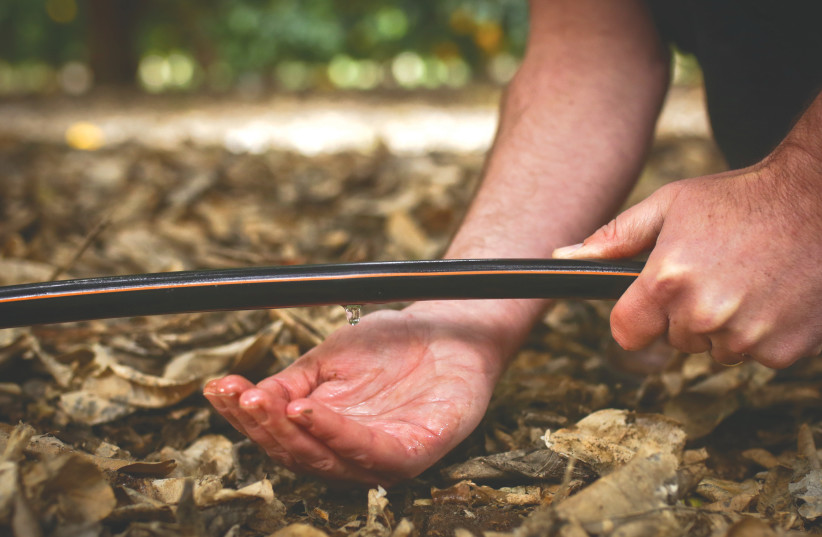Experts in water and marine aquaculture discussed solutions for maintaining and preserving the water and food supply at the Jerusalem Post Global Investment Forum in Marrakech, Morocco, on Thursday. Udi Gat, Marine Aquaculture Project Manager for the city of Eilat, and Abed Masarwa, vice president of products at Netafim, participated in a panel with Ahmed al Bouari, Director of Morocco’s department of irrigation and agricultural space planning. The panel was moderated by Mohammed Zainabi, Editor-in-Chief of L’Observateur Du Maroc & D’Afrique, and Maayan Hoffman, Head of conferences for the Jerusalem Post.
The sea as a resource for food security
Gat, who served previously as mayor of the Eilot Regional Council, said that Eilat is becoming the center of marine aquaculture in Israel and hopefully in the world, by virtue of its unique location – bordering Jordan, Egypt and Saudi Arabia – its airport, seaport and academic research institutions and great municipal motivation.
He explained that marine aquaculture is particularly significant in managing food security in the world today. “The world’s population is increasing, and everyone needs food and protein. The sea is the main producer of protein. We can take the seawater to the land and into marine aquaculture on the land. Traditional agriculture is suffering. Because of global warming, natural fish in the sea are dwindling because of uncontrolled fishing, and we are offering a solution.”
“The world’s population is increasing, and everyone needs food and protein. The sea is the main producer of protein."
Udi Gat
Masarwa noted that Netafim invented and pioneered the concept of drip irrigation. “We invented it out of necessity, because Kibbutz Hatzerim, where it was created, is in the desert of southern Israel.” He noted that Morocco is a farming country and also needs water. “You have to use water smartly,” he said. “We are saving water when we are using this technology to irrigate.”
“We’re talking today about climate change and scarcity of water. Climate change is not only about amount of water - it’s about the timing of water. Farmers were used to getting water for their grains in say March / April and they’re not getting it today - irrigation is the only way forward.”
Producing more food with less water
Echoing the words of Udi Gat, he said the world’s population is expected to reach 10 billion by 2050. “We will need to produce 60% more food, but there will be less arable land and less water.” Drip irrigation is the solution, he said. “Our company slogan is to grow more with less. We want to grow more with less resources.”

Netafim was among the first companies to introduce drip irrigation to the Moroccan market, and the company recently opened a factory in Kenitra, Morocco, that will be officially inaugurated in January 2023.
Al Bouari, whose official responsibilities in Morocco include irrigation, agricultural space planning, dams, drip irrigation and seawater desalination, said that Morocco has suffered from the impact of climate change. In the 1950s, it had 22 billion cubic meters of water, which today has been reduced to just 14 billion cubic meters. He said that Morocco has launched an agricultural strategy to save more water in consultation with Israeli experts. He added that while cooperation between Morocco and Israel has always existed, this cooperation can now be accomplished between the public and private sectors.
The Environment and Climate Change portal is produced in cooperation with the Goldman Sonnenfeldt School of Sustainability and Climate Change at Ben-Gurion University of the Negev. The Jerusalem Post maintains all editorial decisions related to the content.
